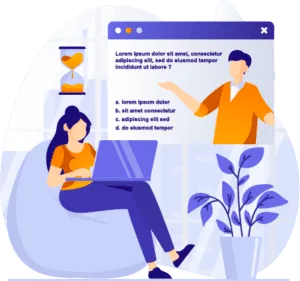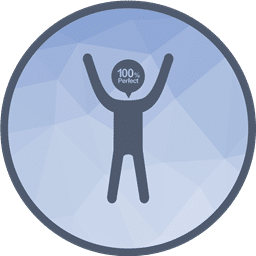Great News! We are now offering a free Workplace DISC Personality Assessment, also commonly known as a DISC Personality Test, or DISC Colour Test, as popularised by Thomas Erikson’s ‘Surrounded by…’ series of books. Below we answer a few commonly asked questions about this assessment:
Q: What is the Workplace DISC Personality Assessment?
A: The Workplace DISC Personality Assessment is a behavioral assessment tool used to evaluate an individual’s communication style and tendencies in the workplace. The test is based on the DISC theory, which categorizes behavior into four styles: dominance, influence, steadiness, and conscientiousness.
Q: What is the purpose of the DISC Personality Assessment in the workplace?
A: The Workplace DISC Personality Assessment is used in the workplace to help individuals better understand their strengths and weaknesses, improve their communication and collaboration skills, and build more effective relationships with their coworkers. The assessment can also be used by organizations to evaluate the strengths and weaknesses of their team, identify areas for improvement, and make more informed hiring decisions.
Q: How does the Workplace DISC Personality Assessment work?
A: The DISC Personality Assessment consists of a series of questions that ask about an individual’s attitudes and behaviours in different situations. Based on their answers, a profile is generated that highlights their dominant style, as well as their secondary styles.
Q: What are the benefits of using the DISC Personality Assessment in the workplace?
A: The benefits of using the DISC Personality Assessment in the workplace include:
- Improved self-awareness and understanding of one’s strengths and weaknesses
- Improved communication and collaboration skills
- Better conflict resolution and negotiation skills
- Improved teamwork and team dynamics
- More informed hiring decisions
- Better career development planning
Q:How long does it take to complete the DISC Personality Assessment?
A: The DISC Personality Assessment typically takes 25-20 minutes to complete.
Q: What happens after taking the DISC Personality Assessment?
A: After taking the DISC Personality Assessment, individuals receive a detailed report that provides an overview of their personality style, as well as specific strategies for improving their communication, teamwork, and conflict-resolution skills.
Q: Can the results of the DISC Personality Assessment be used for any other purposes besides the workplace?
A: Yes, the DISC Personality Assessment can also be used for personal growth and development, as well as in other areas such as coaching, counseling, and education.
Q: Is the DISC Personality Assessment free to take?
A: Usually it is a paid test but we are currently offering it for free for a limited amount of time.
Q: Where Can I take The Workplace DISC Personality Assessment?
A: You can take The Workplace DISC Personality Assessment below free of charge:


































































































If you enjoyed the assesment why not share it with your of fice colleagues? It’s a great way to learn more about each other and work better in a team. As a bonus we’re also giving you 10 tips on how to use what you’ve learned:
fice colleagues? It’s a great way to learn more about each other and work better in a team. As a bonus we’re also giving you 10 tips on how to use what you’ve learned:
- Learn to recognise the four different personality types: dominance, influence, steadiness, and conscientiousness.
- Focus on active listening and adapting your communication style to match others.
- Develop empathy and understanding of others’ perspectives.
- Build relationships by showing genuine interest in others and finding common ground.
- Avoid getting defensive and instead, seek to understand and resolve conflicts.
- Learn to manage stress by recognizing your triggers and developing coping mechanisms.
- Practice assertiveness and set clear boundaries to maintain your well-being.
- Take responsibility for your own emotions and reactions.
- Be open to feedback and seek to continuously improve.
- Stay true to yourself and maintain a positive attitude, even in challenging situations.
- Use humour to diffuse tense situations and build rapport.
- Consider the context and situation before reacting or making decisions.
- Seek out people with complementary personality styles to expand your network and gain new perspectives.
- Cultivate a growth mindset and embrace new opportunities for learning and development.
- Encourage and support others in their growth and development, and strive for a positive, supportive work environment.For more resources, make sure to check out our Careers Blog.




